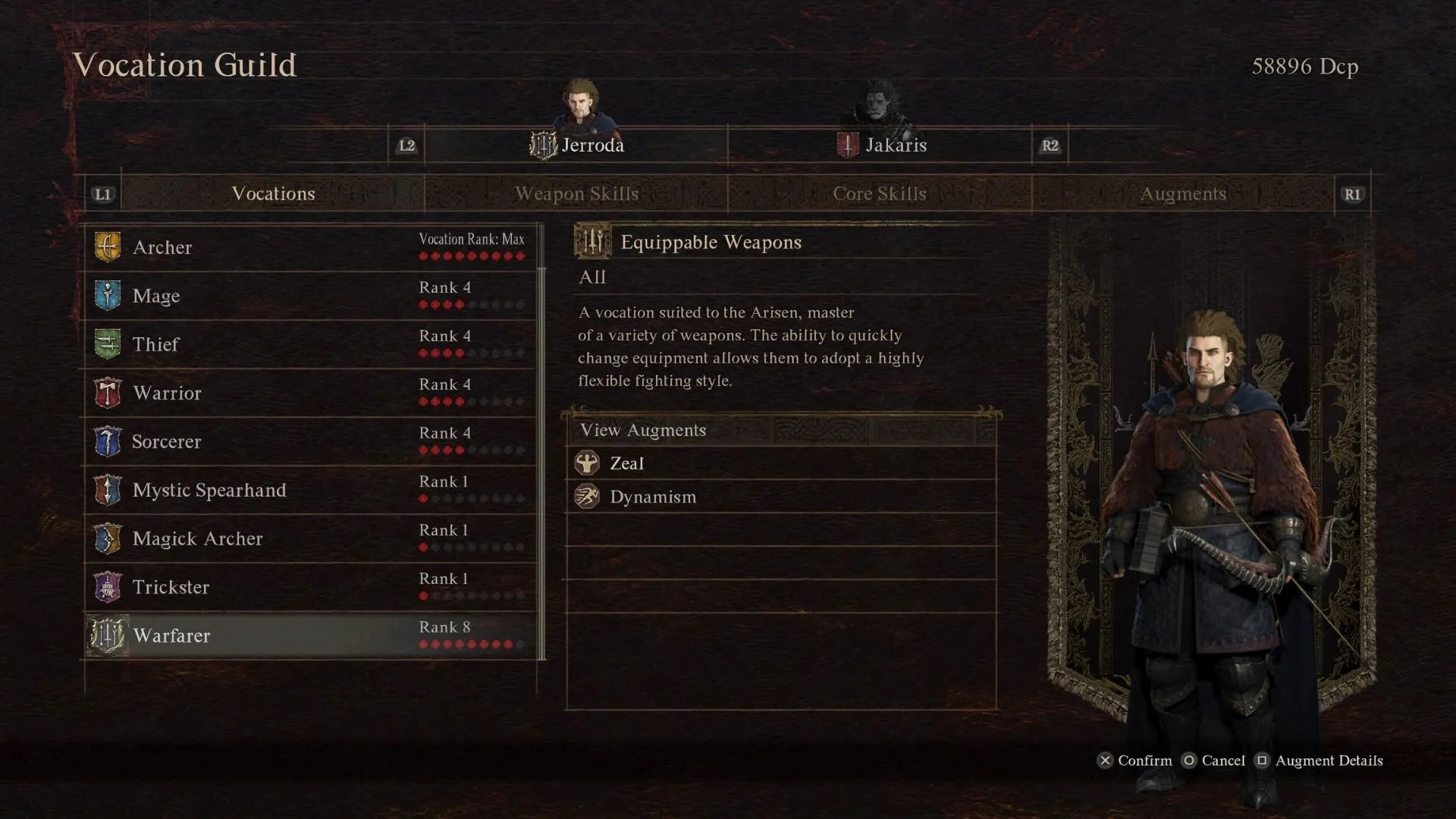RPG fanatics have flocked toDragon’s Dogma 2since its long-awaited release and very few have been disappointed. With the opportunity to create their own fantasy character to their liking, from appearance and mannerisms to specialist skills, there are a plethora of combinations that can be put together, with the only real limit being the imagination of the user.
One particularly difficult choice players need to make in the earliest parts of the game inDragon’s Dogma 2is the vocation, or character class, they wish to begin their journey with. Fortunately, this decision is not permanently locked in for the entire duration of the game and can be changed at any time, however some players may be hesitant to step away from the progress they’ve already made. Here is what you need to consider regarding vocation swapping andwhether it is worth changing your vocation duringDragon’s Dogma 2.

Should You Change Vocation In Dragon’s Dogma 2?
In a word,yes, players should consider changing their vocationduring their playthrough inDragon’s Dogma 2. While this is entirely preferential and there aren’t really any consequences for sticking to your original vocation selection, there are benefits to changing things occasionally. Here are a few things you may want to consider.
Discipline Points Make Vocations Accessible
In addition to earning experience points (XP) for completing quests and killing the vast array of beasts and enemies inDragon’s Dogma 2, you also earn discipline points (DCP), which you can use to purchase othervocations you have unlockedand a host of skills and improvements. DCP is handed out relatively generously, particularly if you square off against tougher foes, so Capcom is essentially encouraging you to consider other options.
With DCP being so accessible and it being relatively quick, easy, and painless tochange your vocationinDragon’s Dogma 2, the only real obstacle to trying them out are the players. Not to mention, there isn’t a limit to the number of times you may change your class and there is no cooldown period, so you are perfectly within your right to change it right back to your preferred style should you be unhappy with the new one.

Changing Vocations Opens Up More Strategic Choices
Every vocation has its own strengths and weaknesses, which means some vocations will find a particular enemy easier to deal with than others. For example, the Archer vocation has a far easier time dispatching Harpies on account of its ranged attack, but may struggle against thieves due to their ground-based attacks and high agility. As such, changing your vocation can be the key tobridging the gapsin you or your party’s weaknesses.
If you are happening acrossa particularly nasty enemy, such as a Cyclops, Griffin, or Dragon, and are struggling to overcome them with your current play and combat style, then changing your vocation could be the key to unlocking your Arisen’s potential and coming out victorious in battle. It would be worthwhile playing a little on a few different vocations so you can handle any challenge as the game gets harder, or even use the Warfarer vocation so you can level up all other vocations at the same time.

There Is a Cap On Vocation Rank
Whilethere is almost no limitto the level your player character and their Pawn can achieve inDragon’s Dogma 2, the same couldn’t be said for vocation leveling, as it has a relatively small cap for the size of the game. Vocations can only be improved until rank 10 before your progress ceases to impact on the effectiveness of your character class. For this reason, it is worth trying out other vocations as you explore Vermund andBattahl.
Aside from DCP accessibillity, the low maximum rank you can achieve for each vocation is another sign that Capcom wantsDragon’s Dogma 2players to really explore all possibilities in the game. As you increase your vocation rank, you will unlock additional augments and skills, some of which can be used across multiple vocations, so it is certainly worthwhilefarming DCP to help you buildyour ultimate Arisen to take down the dragon.

Changing Vocation Earns New Weapons and Gear
If you don’t try out other ways of playingDragon’s Dogma 2, simply changing your class in-menu and changing it back to your original class itself will still come with its own rewards. To begin with, some vocations have achievements attached to them that you can earn by simply selecting the vocation, even if you change it right back as soon as you earn it.
If you’re looking to keep your options open, or even grab some extra gear to convert into gold by selling to a vendor, you should change your vocation at least once toeach of the 10 available character classes. This is because assigning yourself a new class for the first time will earn you the game’s equivalent of a starter kit, meaning you’ll receive a new weapon and armor set that can be worn by your vocation, since there is a limit to what different vocations can wield, use, and equip.